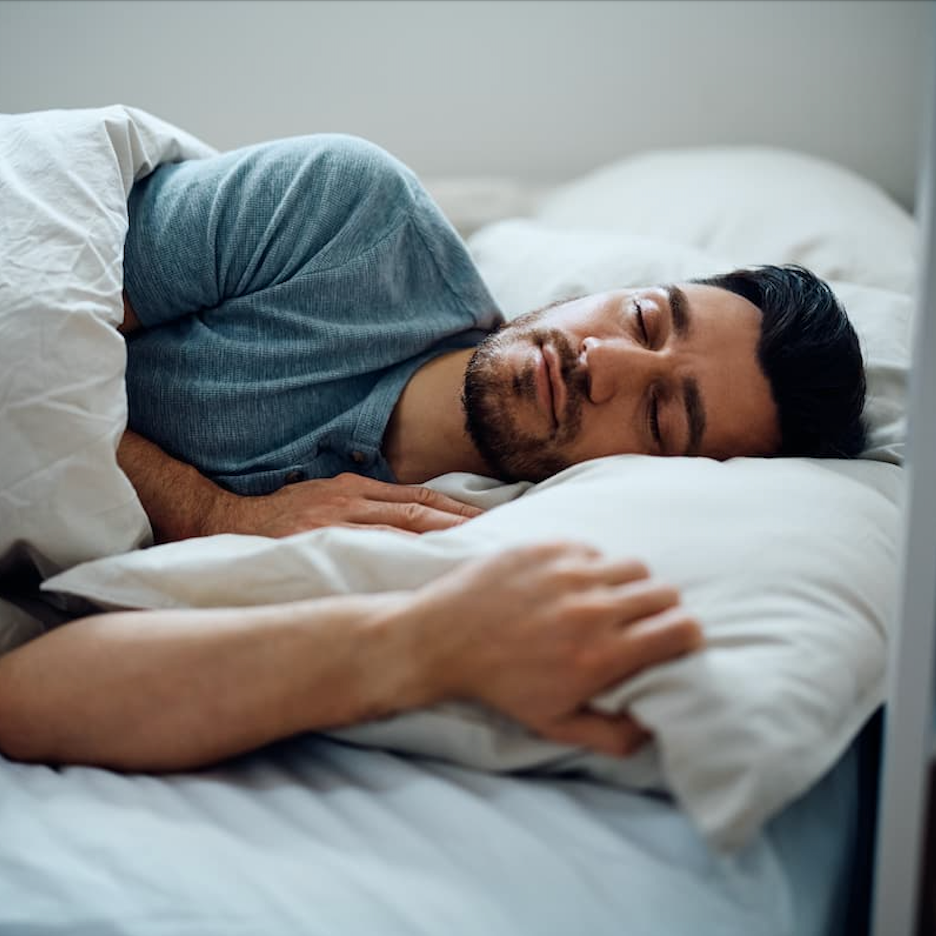Far-Infrared Blanket Boosts Sleep and Muscle Strength
Participants using the DAZZEON αSleep blanket experienced better sleep and increased grip strength after just two weeks of nightly use.
By
Lana Pine
| Published on September 27, 2024
5 min read
Credit: Adobe Stock/Drazen

Using the DAZZEON αSleep far-infrared blanket for two weeks significantly improved sleep quality, increased muscle strength and enhanced blood circulation in participants, according to research published in Clocks & Sleep.
Far-infrared radiation has gained noticeable attention as a promising non-pharmacological treatment option in recent years due to its ability to improve blood circulation and reduce muscle pain without adverse events. Previous research has shown far-infrared textiles can be useful for patients with chronic conditions, such as diabetes mellitus, as they can help to manage and prevent complications, including diabetic foot ulcers. Another study showed far-infrared-emitting pajamas were able to reduce awakening time and improve sleep efficacy. However, the effects of these blankets on reducing blood pressure, chronic inflammation and fatigue, as well as enhancing deep sleep and memory, have not be evaluated.
“Currently, the health-promoting application of combining far-infrared ray functions with textiles is still in its early stages,” the team of Taiwanese investigators noted.
In the double-blind study, investigators recruited 24 male participants over the age of 45 to evaluate the potential health benefits of the DAZZEON αSleep far-infrared blanket. Subjects were randomized to either the DAZZEON αSleep group or a placebo group. Men with chronic diseases, including liver disease, diabetes, cardiovascular disease, kidney disease and asthma, were excluded from enrollment. Additionally, participants with skin allergies or abnormalities, and those with sleep disorders, were ineligible for the intervention.
Subjects were required to use the blanket every night for a period of two weeks. A wearable device collected information on sleep, and blood oxygen levels, blood pressure, surface temperature and arterial stiffness were assessed before and after the intervention. Serotonin, melatonin and inflammation were analyzed via blood samples and changes in fatigue were determined using exercise tests that measured maximum grip strength and reaction time using the Fitlight Trainer system.
Results showed the group using the far-infrared blanket experienced significant improvements in blood serotonin (1.31-fold), melatonin (1.15-fold) and nitric oxide levels compared with the placebo group. This led to enhanced deep and REM sleep durations and better sleep quality. Although there were no substantial differences in bedtime, wake time, total sleep time or time to fall asleep between the two groups at baseline, those using the far-infrared blanket reported a 42.27% reduction in the Pittsburgh Sleep Quality Index (PSQI) score, indicating significantly improved sleep.
Body temperature changes before and after being covered with the blanket were measured for 14 consecutive days, and subjects in the intervention cohort reported significantly higher temperatures compared with the control group.
Patients in the DAZZEON aSleep group also reported improved grip strength and reaction times, with significant increases in left-hand grip strength compared with baseline assessments and right-hand grip strength was significantly greater when compared with controls. Additionally, the blanket helped reduce arterial stiffness and promote blood circulation.
Investigators noted limitations including the small sample size, as exploratory studies tend to focus on obtaining preliminary information. Additionally, as data on far-infrared interventions are scarce, they were unable to determine a reasonable effective response time and ultimately decided on a short-term intervention period of two weeks. Therefore, future research regarding long-term use is necessary. Generalizability may have also been impacted as all patients were male and older than 45.
“Collectively, these findings underscore the comprehensive benefits of utilizing the DAZZEON αSleep far-infrared blanket, positioning it as a promising intervention for promoting cardiovascular health, optimizing physical performance and enhancing sleep quality,” investigators concluded.

